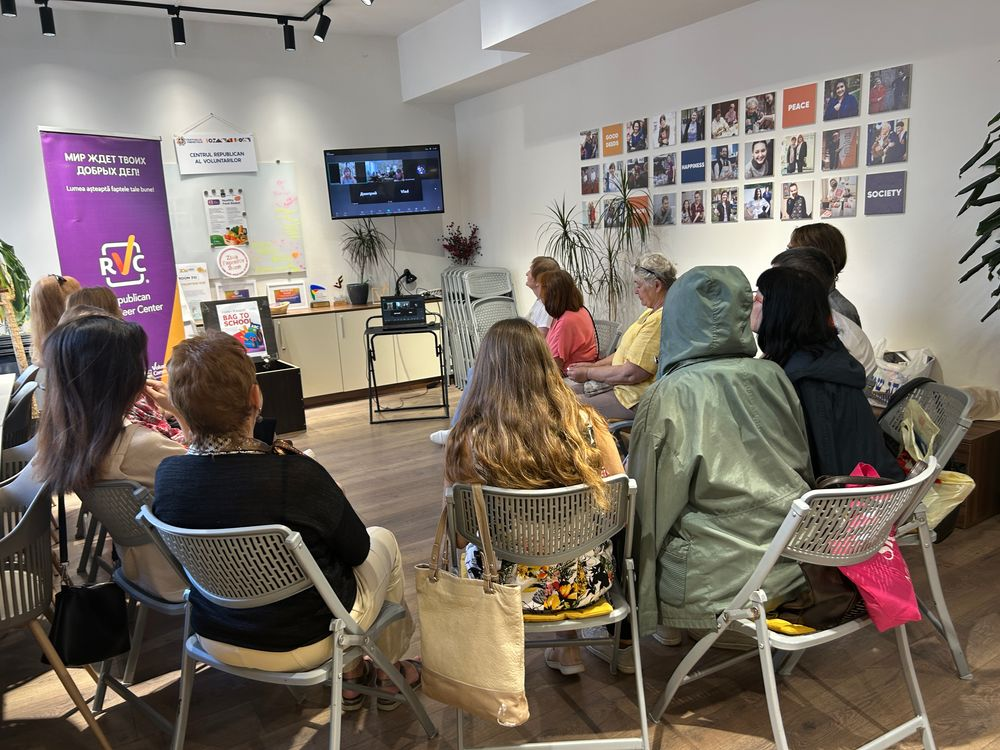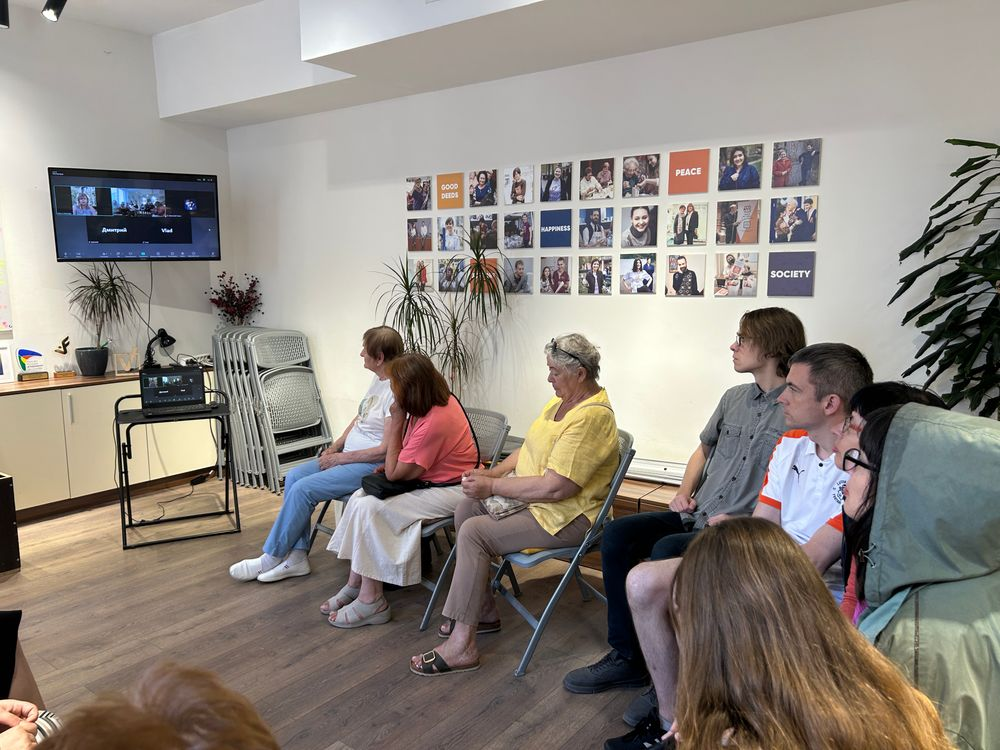Calls of Support
How RVC volunteers reached out with help to the elderly citizens of Israel.
At the end of July, the RVC Call Center held a special action - calling to the elderly Russian-speaking citizens of Israel who, considering all current world events, are in a disturbed state of things. During six days, over 20 volunteers from Moldova were calling those who were in a special need of moral support and attention, even if it was coming from strangers from another country.
Before the start of the project, every volunteer attended a training to comprehend the rules of communication - the highlight was to avoid promising something unrealistic but to just be there for listening and caring.

From July 22nd to July 27th, volunteers tried to reach out to more than 1050 numbers. Connection was possible with 523 people. Some were struggling to speak, others only knew Hebrew, and some asked to call later, but there were also people who thanked volunteers for calling and shared their concerns and recollections.
We received responses from volunteers themselves who turned dry statistics into warm human stories, which we want to share with you.
Prahova Ludmila:
I have been a volunteer at the RVC Call Center in Chisinau since 2018. I like Israel, its traditions, and its culture. Israel is a beautiful country with a rich and interesting history. My children and grandchildren live there. I often visit them; therefore, when, this June, the Call Center was offered to support the elderly of Israel, I was instantly ready to help. Our calls turned out to be very unexpected to the Israelis. They were answering with carefulness and didn't trust me fully. However, often, as the conversation went on, they were starting to show curiosity and actively supporting dialogue. People were sharing their worries and problems, which have sparked up during these uneasy times, and shared their lives. The youth of some of the elderly was associated with Moldova, Chisinau, Odessa, and other places of the former USSR. They were pleased to reminisce about the old days. It, obviously, was lifting their mood up and distracting them from the sad thoughts. Also, I noticed that women were more anxious, unlike men - they were more optimistic, and some were even joking. I had mixed feelings from these calls - from desperation and disappointment, when people were straight up hanging up on me, to the deepest state of satisfaction, when the conversation was actively supported and I was thanked for caring. I felt nice about the fact that during difficult times for Israel I was able to express my support towards the country by contributing with my volunteer activity.

Stolbikova Svetlana:
Many of the elderly from Israel were reserved but grateful. We were hearing tension in their voices; thus, we weren't offended by short responses or the silence. It was important to just be there. We were sharing our kindness with everyone. Every call is a lesson of sensitivity and manners. It is a feeling that we all are a big Jewish family, even though separated by borders.
Cryjanovskaya Cristina:
Some people were hanging up; others didn't even pick up because, perhaps, they were scared to answer the foreign number. Generally, those who answered the calls were saying that they are fine but don't have time to talk. Once, I was having a good conversation with a woman, but the connection was lost. When I redialed the number, the nursemaid picked up this time and asked, "Who are you? Where did you get this phone number from? Why are you calling?" One man wanted to talk, was happy when I called, and said that he wishes Moldova all the best. I also vividly remember this woman who was glad she got a call because she spent her youth in Moldova.
Cryjanovskaya Ocsana:
Some people never picked up, frightened by the foreign numbers. One woman was happy I called, but then her nursemaid picked up and was trying to understand who was calling. One man was talking very warmly and even cared for Moldova. And another elderly woman asked us to find her ex-husband - that's how much she wanted to get a part of the past back.
Katranjy Elena:
I took part in this project because I understand the importance of being there for people, even if I'm in another country. People were saying that they are ready for alarms, that they have shelters, but it's still hard, especially for the elderly who can't move as quickly. Even those who said that they don't need support, obviously, were happy to receive our attention. What has inspired me to call to the elderly of Israel? Undoubtedly, the comprehension of how precious it is to help, at least mentally, the elderly. However, some people were saying that they don't need the support, that they are happy with their lives in Israel, because the government cares about them. But I believe that these calls were necessary because it's pleasant when someone worries and cares about them. I am so glad that I was participating in this project. Every call was meaningful to me. It was nice to offer some help - both mental and psychological - to those people who truly need this. This project is very necessary and right on time.
This volunteering initiative became not only an act of solidarity but also living proof - sometimes simple human participation is more than any words. Even one short phone call can bring warmth and remind you that you are not alone, and it is the most precious thing.